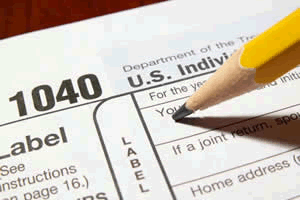Ability to Pay Taxation
What does Ability to Pay Taxation mean?
The ability to pay as it applies to taxation is the economic principle which suggests that a person’s tax liability should depend on the relative wealth of the individual and their ability to pay. This taxation strategy is contrasted with that of a flat tax in which the same tax rate is applied to all tax payers regardless of income and wealth.
Progressive tax proponents
Proponents of the ability to pay taxation scheme suggest that this progressive tax is justified in forcing persons with higher income and wealth to be taxed at a higher rate than those with limited wealth and income because the amount of income and wealth possessed by many wealthy individuals far exceeds the necessary income they need to buy their basic necessities.
Some proponents also argue that progressive taxes help the government generate income, and the burden to fund the government is shifted to those most able to pay. Finally, others claim ability to pay taxation strategies can prevent social instability by limiting the gap between income classes.
Opponents of the progressive tax and ability to pay
Many who oppose progressive tax strategies argue that it contradicts basic capitalistic principles and may actually discourage investment, expansion, and businesses from entering new markets and attempting to generate additional revenue when their profits will be taxed at a higher rate.
The progressive tax is also considered unconstitutional by many who claim it does not treat all Americans equally. Finally, many argue that those who most frequently use the goods and services offered by the Federal Government are those least likely to have paid for them through taxation.
Ability to pay and a simpler tax code
Whether someone is a proponent of the ability to pay tax or a flat tax strategy, most people can agree that our current tax code, with its 3.8 million words, is too complicated.
Due to the complexity of the tax code, it is estimated that the IRS provides wrong answers to simple tax questions more than 20% of the time. The code should be simplified so it can be understood by the vast majority of U.S. tax payers who should not have to spend hundreds of dollars each year to hire tax professionals to help them file their income tax returns.
Additionally, federal spending needs to be brought under control and tax rates should be lowered to encourage business investments and entrepreneurism. The tax code should also not be the playground for politicians to offer deals to their friends, and the U.S. government should not spend more than it can generate in taxes.
Related Pages
Lawyers near
Term of the Day
Abuse of a child
Abuse is any act against a child which results in death, serious physical or emotional harm, or sexual abuse.
Category: Adoption







